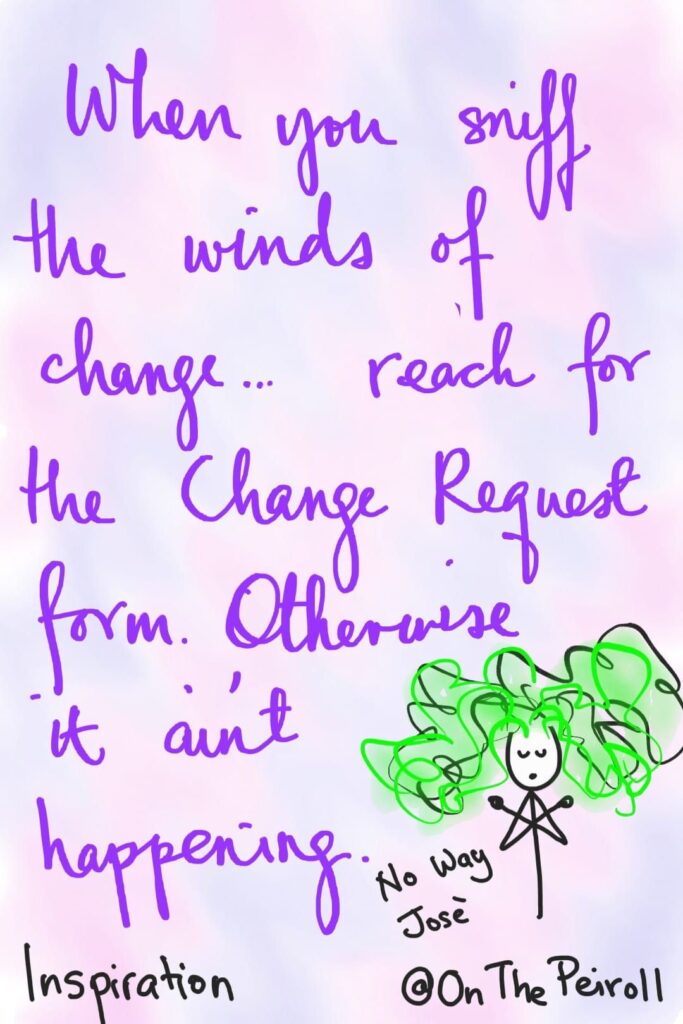I couldn’t believe my eyes. 😯
The previous PM had left, and I had just taken over the project and it was a hot mess.
She didn’t want to be the ‘bad guy’ and rarely said “no” to the customer – so changes were accepted without proper change control.
User stories were added to scope willy nilly, and the team was up in arms (rightfully so!) 😫
So now, _I’ve_ got to be the bad guy.
“Yes I know we did it, but we shouldn’t have.”
“Those changes have had a ripple effect on a number of things, and we have a couple of options.
“Option 1 – we assess the impact of the change and estimate the cost of implementing it PROPERLY, which includes requesting a change in the integration catalogue (and additional cost to you because your vendor will charge for that API change). We will also charge you for this work.
“Option 2 – we try and reverse out of this change to take you back to the original scope, but we are going to have to charge you for re-factoring work.
Sticky smelly messy mess. 💩
You can bet the client was not happy. 😕
When you’re working for a #Salesforce Consulting Partner, Change Requests are required if the project deviates from the original Statement of Work (SoW) in terms of scope, or budget.
Agile based consulting projects that are contracted on a ‘time hire’ basis, i.e. you engage a project team for x number of sprints at y rate per person per day for z number of days in total – is a little different.
Here, the SoW should not state specific deliverables or milestones as the client is likely to dictate the scope.
Consulting led projects are likely to have a methodology that is a hybrid of Agile and Waterfall – where you’d have a front-loaded Discovery with reasonable elements of design (though Fixed Price projects requires a lot more detail to be pinned down) and a bigger piece of Acceptance Testing towards the end.
In-sprint or in-iteration testing can still happen (e.g. unit testing and isolated user story testing), but larger projects with integration with external systems requiring collaboration with vendors as well as data migration workstream will require more orchestration around testing to ensure robust delivery.
Change that is implemented without proper impact and risk assessment can incur costs, especially when there is dependency on external systems.
Most organisations don’t like to hear the words ‘Change Request’ because it really means:
1. This is going to cost us more £££
2. Partner is going to make it difficult for me to get what I want.
😐
Good governance and change control is there to make sure projects have a successful outcome.
And that’s what we all want, right?
Apart from magical yummy 🍩 that make you shed weight… 😁
If only such a thing existed!

